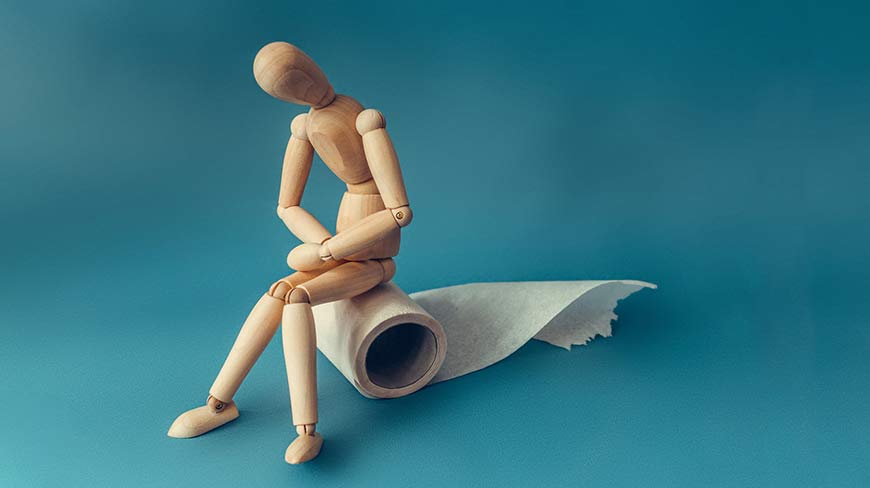9 Common Causes of Constipation and How to Manage It
Though there are lots of jokes made about constipation, if you’re suffering from it, it’s no laughing matter. You just want relief!
Constipation, the inability to pass stool regularly, can be caused by changes in routine, travel, and a diet low in fiber. Constipation causes fullness and pain in the abdomen, sluggishness, hard stools, and bleeding and hemorrhoids that are a result of straining.
Constipation is common. According to the Cleveland Clinic, 2.5 million Americans see their doctors because they are constipated.
What Causes Constipation?
Constipation can be caused by many different factors. They include:
- Poor hydration
- Slow metabolism
- Lack of activity
- Pregnancy
- Diet high in dairy
- Stress
- Not using the bathroom enough
- Irritable bowel syndrome
- Abusing laxatives
Constipation may be a symptom of an underlying condition. This can lead to rectal prolapse and hemorrhoids if left untreated. Your gastroenterologist will want to review your symptoms during your appointment. You should be specific about your bowel movements, when your constipation started, and what relieves it. Your gastroenterologist may run tests, like x-rays or colonoscopy, to look for abnormalities or disease.
Managing Constipation
No one wants to feel constipated! Here are several things you can do to find immediate constipation relief at home.
Stay Hydrated
During digestion, your colon absorbs water from the food that passes through it. If you’re dehydrated, your body will pull water from the colon. This can result in stool that’s dry and hard to pass.
Drinking more water keeps you hydrated. Some find that drinking carbonated water eases constipation quicker than still water.
Add Fiber to Your Diet
Stool that sits in the digestive tract loses water and becomes dry. This leads to it being difficult to pass. Dietary fiber bulks up the stool, making it easier to pass more quickly through the digestive tract.
The recommended daily amount of fiber is 20 to 38 per day. You can add more fiber to your diet by eating apples, bananas, beans, vegetables, and whole grains. Upping your fiber intake may ease your constipation.
…But Fiber isn’t Always the Cure
Fiber is important for good digestion, but it doesn’t always relieve constipation. If adding fiber makes you feel worse, stop and talk to your doctor.
Set Aside Bathroom Time
Making time to eat breakfast, drink coffee, and use the bathroom at home may relieve constipation. The food and caffeine may make you feel like you need to go, and being at home in your own bathroom can help you relax and have a bowel movement.
…And Don’t “Hold It” When Away From Home
It can feel weird to use a public bathroom, but waiting to go means the stool is sitting in your colon, drying out and getting harder to pass. Don’t put off a bowel movement just because you are away from home.
Get Some Exercise
Did you know that being sedentary can lead to constipation? Staying active keeps your body systems moving, so it’s no surprise that exercise keeps your bowels moving. At least 150 minutes of exercise a week can help keep your digestive system running smoothly.
Most people experience constipation occasionally and can treat it easily at home through lifestyle changes. For some, it can be a long-term issue. If you’re suffering from constipation three times a week or more, have blood in your stool, or are experiencing unexplained weight loss or pain, schedule an appointment today.


